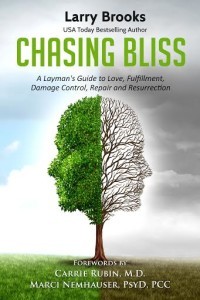In Defense of Slow, Thoughtful Writing
The other day I saw something on my Facebook feed that read, “Write Your Book Faster With Half the Effort.” In a world than demands instant gratification and a “winning” strategy, I understand the marketing behind the promise. But that doesn’t make it a good idea.
Writing faster doesn’t make your writing better and half the effort, well, it’s just half the effort. This sort of advertising pops up too often these days. Well-known authors promise me that I can crank out commercial fiction with their $99 eCourse, motivational speakers offer me “credibility” as a writer if only I will give them my money.
And few people talk about the long haul of craft, and those who do usually aren’t found advertising on Facebook.
Imagine that you are a young man, crawling into bed with a beautiful woman, and you say to her, “Tonight I am going to bring you to orgasm faster with half the effort.” Do you think she is going to say, “Oh baby, sign me up?” Chances are, unless you are a real idiot, you wouldn’t have that conversation in bed.
The faster/less effort trend with regard to writing is just as lame a conversation as the one with the beautiful woman in your bed, yet it seems to be oozing out of social media these days like it’s actually something to be desired.
Why the need for the short-cuts?
That’s what I want to know.
The answer takes us back to my first point, we are a culture that want things fast and we don’t want to sacrifice too much to get it. Why sacrifice, sweat and tears of mastering craft remain an unsung nobleness to which any artist should pay homage is beyond me.
Becoming a novelist demands that I write stories in a thoughtful construction that will provide a framework to create a world. And I want to know everything about that world and everyone in it. How can you possibly cut that work in half?
Novels are two-pronged. The first prong is structure. Our brains are hardwired for the order and sequence of story. Without structure, you don’t really have a story, you have rambling narrative, at best. The second prong is prose. Well-written, thoughtful prose that reveals the nuance and dimension of your story telling. Neither of these two components can be rushed.
“Do the work and the results will follow,” says Robert McKee.
The work is the preparation, the building of a frame upon which your story will hang. Can you synopsize your story in less than two minutes? You have to really know the story to be able to do that and yet I meet lots of writers who, when asked what their story is about, will go off on a narrative spin that leaves me wondering how long I will have to listen to them before I can make an escape.
Here’s the thing, we all know about fast food. It has little nutritional value, which means it can’t sustain you. Keep eating like that and you will get sick. That’s also the thing about fast writing. There is little sustenance in half the time and half the effort, and not only will it not sustain your manuscript, it won’t sustain your reader. It will make them sick.
A novel is best birthed in a slow, simmering environment. Thoughtfulness should be the intent.
And here is the hard truth that a lot of rookie novelists do not want to face: learning to write a good novel is a slow process.
You learn from each manuscript and each manuscript is going to require 70-thousand to 80-thousand words. Without the striving for excellence in structure and in prose, without the willingness to put in the time and not try to rush it, you are just another “trending now” wanna-be.
I understand a desire for quantity.
Hell, at my age I don’t exactly have decades in front of me with which to build a volume of work, and that’s putting it kindly. But it’s the quality that concerns me the most. We live in the most literate time in human history. That should be the best excuse of all to strive for excellence in craft.
Some tips on getting serious?
Sit down and write every single day whether you feel like it or not.
Keep a stack of yellow legal pads next to you and sketch out scenes, scenarios, quirks, intent and obstacles for each bit of prose that you write.
Structure is the pre-requisite—bringing the story to life with nuance and dimension is in the thoughtful details.
When you have finished a draft, re-read it with discerning eyes before you begin your first set of edits and revisions.
Sit with it for a while. Think about it.
Don’t skimp on changes that will make your manuscript better.
Most importantly, don’t delude yourself into believing there is a magical formula that makes novel writing quicker and easier. Just do the friggin’ work.
And the next time you crawl in bed with a beautiful woman, tell her this: “We have all night, sweetheart.”
‘Nuf said.
Stephanie Raffelock graduated from Naropa University’s Creative Writing and Poetics Program. She writes a bi-monthly column for Sixtyandme.com and guest posts for sites like Storyfix.com, JenniferBlanchard.net and Huffington Post. Her debut novel is represented by Dystel & Goderich Literary Management. You can find her at Stephanieraffelock.com.
*****
Reviewers Wanted
If you’re a real-deal reader/reviewer and would like a free copy of my new book, Chasing Bliss: A Layman’s Guide to Love, Fulfillment, Damage Control, Repair and Resurrection, let me know (storyfixer@gmail.com) and I’ll send you a Kindle edition, no strings.
To learn more (including an author interview), check out the new website for the book at: Chasingblissbook.com
The post In Defense of Slow, Thoughtful Writing appeared first on Storyfix.com.




